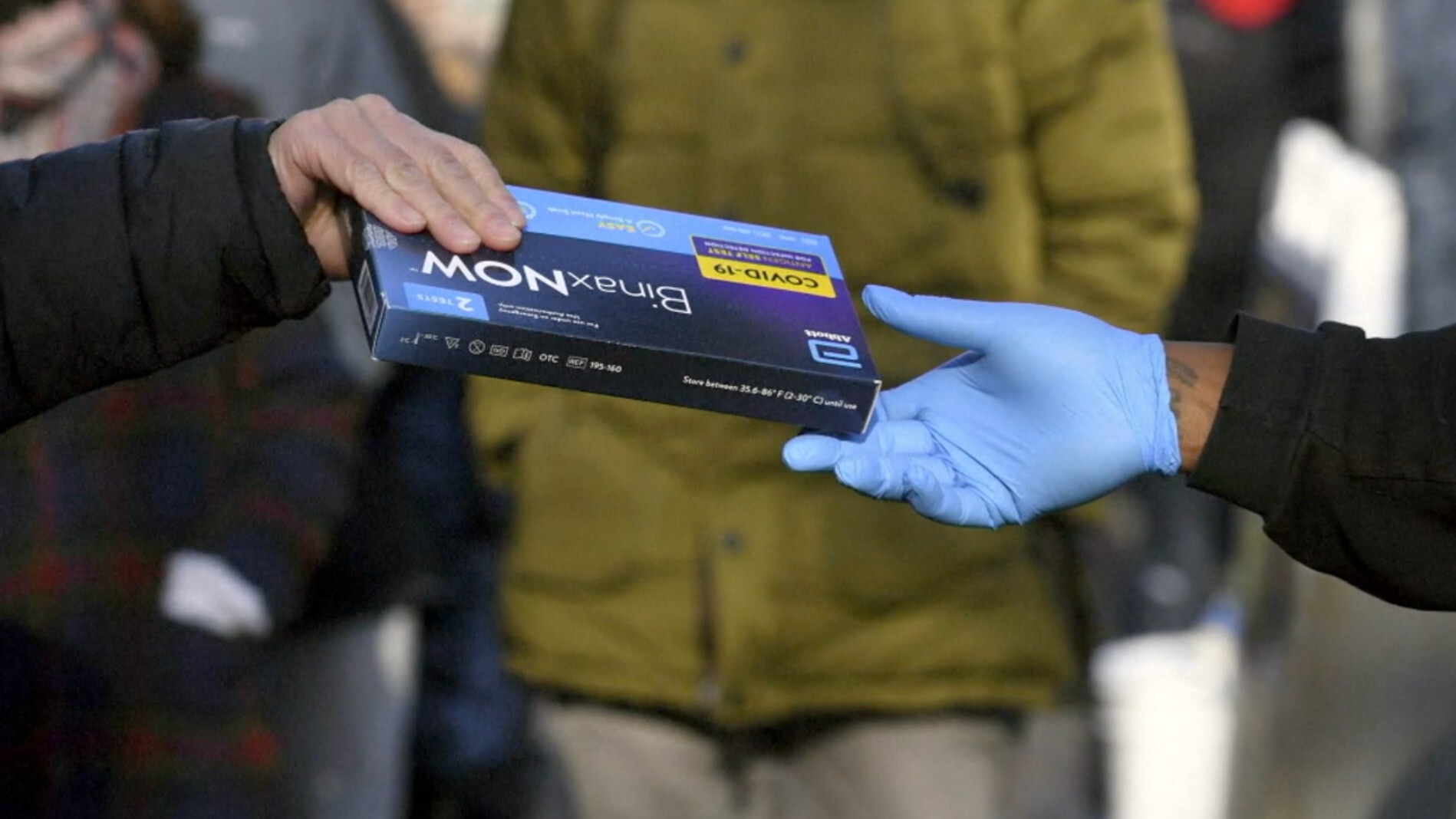Disadvantaged populations face barriers to free federal at-home COVID testing
Communities who have been hit the hardest by COVID-19 are running into barriers accessing the Biden administration’s free at-home COVID-19 testing program.
[anvplayer video=”5086035″ station=”998122″]
Some local organizers said the design of the rollout is keeping some vulnerable populations in the dark.
“We want to be sure that we can put tests in the hands of those that are having the highest risk factors,” said Chris Singer, Minnesota Community Care vice president of clinical operations and nursing.
Minnesota Community Care’s mission since the start of the pandemic has been to help patients hit the hardest have access to COVID resources.
“It is the communities of color that are having the highest positivity,” Singer said.
But Singer said Black and Latino communities are facing some of the biggest obstacles when it comes to getting their hands on a free at-home test.

A person wearing a latex glove hands off a BinaxNOW rapid COVID-19 test. (KSTP)
The Biden administration’s rollout allows four rapid antigen tests per household.
“That’s one of the concerns that we are hearing is if you have a family of 10 living in one house and you’re able to get four tests, how do you really prioritize that among the family members that are there?” Singer asked.
According to U.S. Census Bureau data, about a quarter of Black Americans live in households with at least five residents — and for Hispanic households, it’s more than a third.
Singer said access to technology presents another barrier.
“Not everyone has access to a computer or a phone that can follow the link to be able to get to that, so there’s definitely some gaps in the plan,” Singer said.
“If you don’t have a permanent address,
you don’t get a free test.”
Catholic Charities works with those experiencing homelessness and people who recently transitioned out of being homeless.
Representatives said the rollout sends the message — if you don’t have a permanent address, you don’t get a free test.
“It is certainly a challenging equity issue,” said Emilia Lewin-Karras, Catholic Charities Glenwood campus program manager. “You can have over 100 individuals living in the shelter who all have the same address.”
Lewin-Karras said gaps in the system are nothing new and COVID-19 simply amplified inequities that already existed.
“This is such a wide-reaching issue in our in our community right now,” she said. “I think that it is a very complicated issue and first and foremost, we need more accessible housing for this population.”
The organizations added they have different initiatives to help vulnerable populations because sometimes support does not come from the top. This means establishing partnerships and finding other avenues to get tests in the hands of people who need them the most.